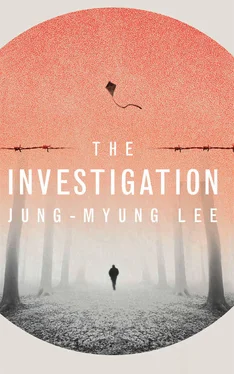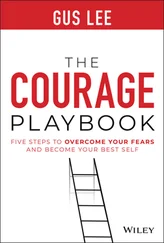‘Yuichi,’ Maeda said gently. ‘The investigation is over. Stop picking at scabs. It doesn’t matter who killed him. All Koreans are the same. They’re not worth being kept alive.’
Although I had begun this investigation only under orders, now I found myself unable to let it rest. I still had no idea what had happened. What was behind Sugiyama’s mysterious actions, the secret tunnel and the underground library?
Maeda raised his voice. ‘You need to realize how serious the war situation is. Every day young men are dying on one battle-front after another. Sugiyama was just one of them. It’s like pouring a small gourd of water into the Pacific. Obsessing over a closed investigation is an affront to their memories. Understood?’
I turned around woodenly and walked out of the office, feeling his gaze burning into the back of my head.
Maeda’s voice flew at me like a leather whip. ‘By the way, I’m assigning you to take over Sugiyama’s other duties. You must censor the sheet music for the concert, escort the chorus and watch over them during practice.’
The grandfather clock rang ten times, like a heavy axe chopping down a tree. I was certain I would begin to fall very slowly, unable to stand upright any more.
JESUS CHRIST, A HAPPY, SUFFERING MAN
The cells were filled with cold, grey air. Twelve men were crammed in a space five metres wide by five metres long. Their breath formed tiny water drops that clustered on the walls. The stiff, frozen men waited impatiently for the beginning of labour; it was easier to live with the cold when they moved their bodies. They were starving, freezing and dying. Before falling asleep at night, they stared into the face of the person lying next to them. Nobody knew what would happen overnight; an invisible hand silently yanked souls away in the dark. In the morning the prisoners woke with moans, starting a new nightmare all over again. Lying on the frosted floor, their blood frozen, the men would turn their heads to check that their neighbours were still breathing.
One day, as a man ate his meagre ration of rice, he announced, ‘If I die, don’t move my body until spring. My body won’t start rotting because it’s so cold. And you can have my share of the rice.’
Indeed, nobody told the guards when someone died. The prisoners would rather sleep next to a corpse, if they could fill their hollow stomachs with a few more frozen balls of rice. They wished they were living a nightmare; at least they wouldn’t feel pain if they were dreaming. The men who were still alive ate the meals of the dead, then paid the price by digging graves in the frozen ground when the guards found out. They all believed they might be next.
Soon, even the healthy men started to die. The prisoners liked to say that one could survive the year if one lived through the winter. As the season deepened, more and more men were assigned to receive medical treatment every week. The prisoners felt protected and cared for as the doctors listened to their hearts, measured their blood pressure and drew their blood. Depending on the results, the doctors prescribed infusions. The men entrusted their bare arms to gentle nurses in white masks. They hoped the warm solution entering their veins would invigorate their tired bodies and strengthen their feeble heartbeats. Their fellow cellmates eagerly waited for their return to hear every last detail. The men who’d received treatment exaggerated what they’d experienced, creating a fantastical infirmary, a place filled with bright light that wasn’t hot in the summer or cold in the winter, a paradise where angels in white caressed their wrists. Everyone wanted to be chosen, to revel in that special privilege. Weak, sickly men were treated as heroes. Before long, though, their dreams and fantasies crumbled. Those who were called into the infirmary saw no visible changes to their health. They became more subdued and talked less, but it wasn’t clear what the cause was. The patients began to tire of going to the infirmary. Eventually some of them wanted none of it, but it wasn’t in their power to decide.
Dong-ju was selected to receive treatment at the beginning of winter. I discovered this one Monday morning when I didn’t see him in his work area. I felt a sense of foreboding. It began to snow as I ran across the yard. I didn’t believe in God, but I prayed that nothing had happened to him. As I ran into the main corridor of the central facilities I heard a guard shout authoritatively, ‘Step to it!’
The solemn guard was leading thirty-odd prisoners. Dong-ju stood out among the grey faces. He smiled as always; his smile was luminous against the other pale faces, lustreless skin and muddy eyes.
The guard spotted me. ‘I’m escorting prisoners to their medical treatment. What is it?’ He was a seventeen-year-old boy, but as he’d been conscripted even younger than I, he was at a higher rank. He should have been eating his lunch in a classroom or trying to stay awake while reading a grammar book or learning trigonometry or calculating the distance to the moon. But war made him a soldier. The youth became taciturn, learning how to destroy a man’s dignity before he could realize what dignity was.
I approached Dong-ju. The escort guard cocked his head disapprovingly. While he paused, wondering if he should stop me or not, I grabbed Dong-ju’s elbow and tugged, forcing him to stumble out of line. He smiled faintly and shrugged as though to ease my worries, moving his parched lips. ‘I’m fine. I have a cold, but it’s nothing serious. It would be a cause for worry if you don’t get a cold or two in this kind of weather.’
I looked him over, but he did seem fine.
‘I don’t know why I was chosen, but it’s a good thing,’ he said. ‘If I get treatment I’ll feel lighter and it’ll be easier to get through winter.’
The escort guard shot Dong-ju a tense look. He limped back into line. The escort guard reported to another guard manning the gates the reason for the transport and the number of prisoners, and the line slowly passed by.
The red prisoner’s garb looked like a baggy coat on Dong-ju because of his emaciated physique; he soon became invisible among all the other pale faces.
I recalled a poem he’d sung out last night in the dark interrogation room, now cradled in my breast pocket like a ticking time bomb:
CROSS
The sunlight that used to chase me
Is hanging on the cross
On top of the church right now.
The steeple is so tall
How did it climb up there?
The bells aren’t ringing.
I pace, whistling,
If a cross were allowed to me
Like it was to
Jesus Christ,
A happy, suffering man,
The poem still gave off warmth, as though Dong-ju’s breath was lingering over the words. I quietly recited the last stanza to myself. He wasn’t yet twenty-five when he wrote it, but he was already grappling with his death:
I would bow my head
And quietly let
Blood blooming like flowers
Trickle under the darkening skies.
The previous night I’d ripped the poem out of the file. ‘There’s one stanza that doesn’t make sense to me.’
‘Which one?’
‘“Jesus Christ, a happy, suffering man.” It is surely contradictory.’
Dong-ju gave me a faint smile. ‘Life isn’t always logical. Everything is contradictory.’
‘How can you say that?’
‘Life is like that. It’s filled with falsehoods and filth and evil. But life is made up of these contradictions. Contradictions aren’t falsehoods. They’re a way to strengthen the truth. Jesus Christ’s suffering absolved mankind of its sins. That’s why he could be happy at the same time.’
Читать дальше












